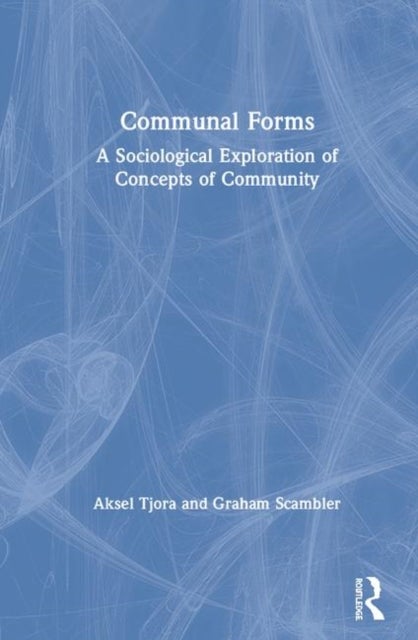
Communal Forms av Aksel Tjora, Graham Scambler
1759,-
<P>Drawing on a wide range of social theory, as well as empirical inputs from studies of work, neighbourhoods, events, meeting places and online self-help groups, this book suggests that communal forms are constructed on the basis of communicative, material, biographic-cultural, practice-based, and situational layers. The concept of community has long provided an important point of departure for the discipline of sociology, with the conflicting conceptions of community before and into modernity embodied in Ferdinand T¿nnies¿ <EM>Gemeinschaft</EM> and<EM> Gesellschaft</EM> and in Emile D¿rkheim¿s <EM>Mechanical and Organic Solidarity</EM>, providing the focus for debate. Other contributors have maintained an interest in communities as communions, interactional competencies, symbolic identification, tribal connection, and more recently communication. Drawing on such theoretical contributions, as well as empirical inputs, the authors develop a more nuanced concept of community, based on t








